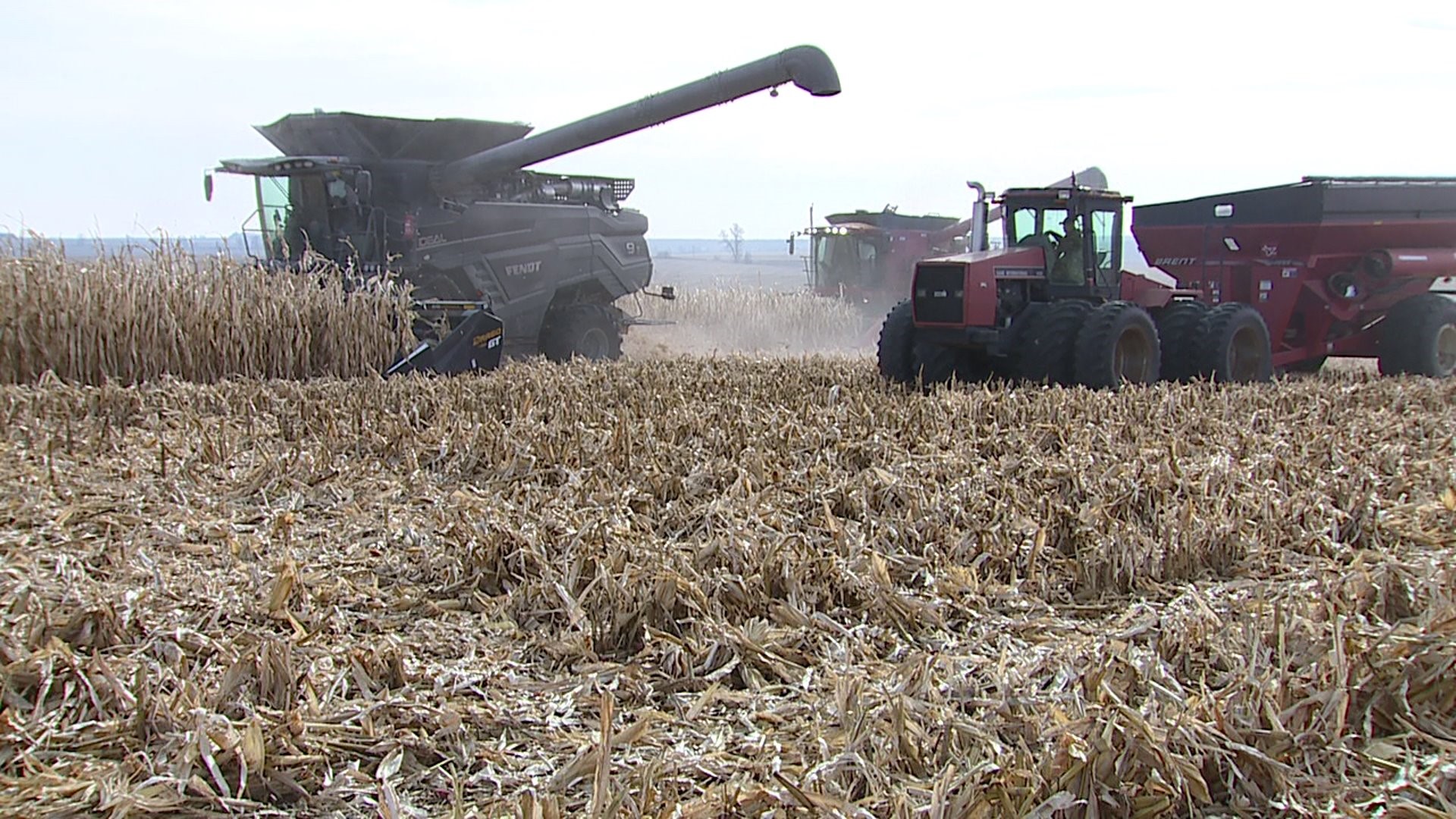SCOTT COUNTY, Iowa — With inflation reaching record highs and gas prices continuing to soar, a temporary pause on the summertime ethanol cap could mean higher profits for local farmers and lower prices at the pump.
On April 12, President Joe Biden announced the Environmental Protection Agency will issue an emergency waiver temporarily allowing sales of 15% ethanol blends known as E15. Typically, ethanol is capped at a 10% blend from June 1 until Sept. 15 because of controversial concerns that it contributes to smog in high temperatures.
The Biden administration says the move will offset record-high gas prices brought about by Russia's invasion of Ukraine and will save drivers an average of 10 cents per gallon, but only at 2,300 gas stations mostly concentrated in the Midwest and South.
A 2009 National Renewable Energy Lab study found that E15 does contain roughly 2% less energy than E10, meaning it should be priced about 2% lower in order to have the same cost-per-energy unit.
Reporters at WOI in Des Moines found that on average, E15 was priced anywhere from 4% to 6% cheaper than E10.
Locally, the temporary cap removal could spell out good news for farmers as well.
"Anytime we can create demand for our product, it's a good thing," said Wayne Franck, a Mercer County farmer. Roughly 85% of his corn is sold to local ethanol plants and with Biden's announcement, he expects that sale price to increase.
"If they could lift the mandate to be permanently year-round, where we sold E15 all year every year, that would help demand even more," said Franck. "And it'd help the environment. It's a higher octane fuel, cleaner-burning fuel, so it'd be greater for everything."
Even farmers that don't sell their corn to ethanol plants say they might get a boost as well. Robb Ewoldt is a farmer in Scott County and told News 8 every little bit helps.
"I grow corn and I grow soybeans so I'm happy anytime we can use a renewable fuel like ethanol or biodiesel," said Ewoldt. "Anytime that you can add demand to our product, which this will do by adding another 5% ethanol into the blend, it'll definitely help farmers."
However, Ewoldt went on to say the real winner will be the consumer.
"They're going to be able to buy that much more gas if it drops 10 cents in value," he said. "I think that's good for the consumer with what's happening with inflation and with energy issues."
Overall, the move should increase ethanol demand by more than 5 billion gallons nationwide, requiring an additional two billion bushels of corn according to Growth Energy, the nation's leading biofuel trade association.
"I think certainly any savings is something that consumers will notice, particularly when you've got larger vehicles, you're fueling up every week or so," said Chris Bliley, senior vice president of regulatory affairs at Growth Energy. "And recently, we've already seen ethanol savings as much as 50, 60 cents per gallon, which is certainly noticed."
Now, Bliley says the next step is working to make the temporary adjustment a permanent one.
"I think this is welcome news for this summer to get us through this summer. But we certainly need a more permanent national solution so that this fuel can be available nationwide throughout the year and sold just as any other fuel would be sold," Bliley said.

